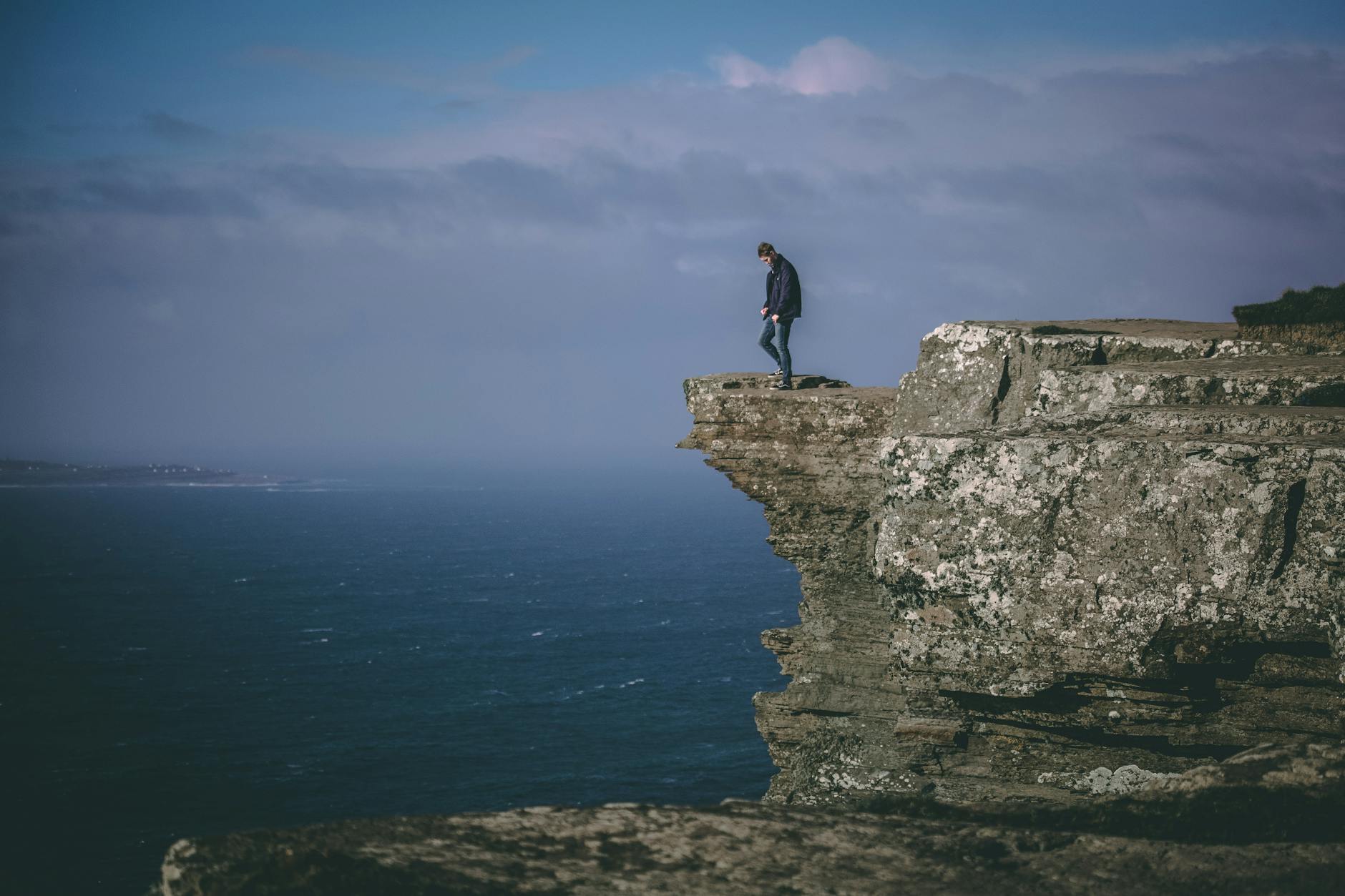Courage is not the absence of fear, but the mastery of it.
Note: words – Completed in 1 h 32 minutes (brainstorming + writing) – typed version with minor grammatical edits made (originally handwritten on 11 September, 2024)
A massive explosion is heard at the back of the spaceship. “What the hell was that?” the astronauts think as the alarm lights & emergency alerts on the control panel start blaring wildly. The oxygen cylinder has exploded. “Houston, we have a problem.” The commander informs flight control. The astronauts aboard NASA’s Apollo 13 moon mission found themselves in this exact situation on their way to the moon. The spacecraft was spewing oxygen into outer space, and without it, they would all die. In such situations, it is natural for a human’s fight or flight instinct to automatically get triggered. You either run away or you fight. You can do neither on a spaceship.
In this precarious situation, both the staff at the flight control center and the astronauts showed unimaginable courage in the face of terrifying circumstances. They worked together to stop the oxygen leak, abort the mission, and figure out a viable solution to bring the crew members safely back to Earth. It is this feature of humans that makes us unique. Despite crippling fear, we have the ability to tap into our reserves of courage and master that fear.
Why is courage needed in the first place then? Well, as we just saw, an automatic fight or flight instinct is biologically hardwired into our bodies. Life is filled with unpleasant circumstances. One cannot simply run away and avoid them. Hence, we need the special ingredient of courage to give us strength to overcome our fears, inhibitions, and self-doubt. It is this courage that allows us to stay calm even in strenuous circumstances and act correctly in decisive moments.
We must, however, explore the nature of this courage. Does it imply that where courage exists, fear disappears? That would be an incorrect assumption. Fear is not just a psychological phenomenon, but a biological one too. Our body inevitably releases hormones like cortisol in stressful situations. We cannot control that. However, we can control the thoughts in our mind.
What happens when we aren’t able to conquer this fear, however? The invasion of Alexander in India is a classic illustration. When Alexander reached the banks of the Indus, he encountered two major rulers – Ambi and Porus. The odds were overwhelmingly against the Indian rulers. Alexander’s army was massive and had been on a winning streak from Greece all the way to Afghanistan. Ambi succumbed to the fear of brutal defeat and soon surrendered to Alexander – even without a fight. This is what fear can make you do. When you aren’t able to master it, fear masters you. It takes control of your senses, prevents you from thinking clearly & rationally, and cripples your decision-making – forcing you to take the easy way out.
However, the neighbouring kingdom ruled by Porus was not so easy to suppress. Porus was faced with the exact same situation as Ambi. It’s not that he didn’t feel fear when faced with Alexander’s mighty forces. Despite the fear, he decided to conquer it, and instead fight to the end. Porus fought valiantly, and despite his defeat, upholded his duty over defending his kingdom & people. When he was at the mercy of Alexander & he asked Porus how he should be treated, he replied – “As a king treats another.” Impressed by his courage, Alexander restored his kingdom back to Porus.
This is why it is important to master your fear. The fear will never disappear. It will always exist in some amount. However, your response to the fear is what allows a favorable outcome. Mastering the fear allows us to control it and keep it in check. It allows us to suppress the biological instinct designed to help us survive and not let it dictate our course of action even in non-life-threatening circumstances.
This concept of conquering fear is witnessed in action throughout time and space. It manifests itself in numerous forms. At the close of the 19th century, when the scramble for colonies was heating up in Europe, Italy also decided to try their luck. They invaded Ethiopia, expecting an easy win against the primitive Ethiopian people. The Ethiopians were poorly equipped, technologically inferior, and it seemed like a certain defeat was impending. Yet, they possessed something the Italians didn’t anticipate – courage. They fought valiantly to protect their motherland, drove back the humiliated Italians, and inspired countless anti-colonial and anti-imperialist struggles across the world.
One of these struggles was happening across the Arabian Sea in India. During the Indian National Movement, Gandhiji advocated the use of non-violent satyagraha to resist the British rulers. The odds were overwhelming. Unarmed civilians (women, children, workers, peasants) against trained policemen armed with lathis, boots, and guns. Get the satyagrahis did not succumb to their fear and marched on, enduring violent lathi charges, injuries, death of their friends, family members, rape of their women, and even incidents like the Jallianwala Bagh massacre. The unparalleled courage and bravery of the masses eventually culminated in the first country to achieve independence from colonial rule on such a massive scale through largely non-violent means.
In the jungles of the Himalayas, contractors came to cut down the trees. They had the power of money and strong connections behind them. The villagers were unarmed and their persuasion had failed. Yet, the women mastered their fear & clung to the trees, challenging the contractors to kill them if they wanted to cut the trees. Their immense courage to stand for their rights & environment was immortalized in history as the Chipko Movement.
On the other side of the globe, in the USA, African-Americans had to suffer for centuries at the hands of the white majority. Brought forcefully as slaves and later immigrants, they suffered untold exploitation by the whites – which carried on for generations. However, despite the repression by the State & majority population, they overcame their fear and, led by Martin Luther King Jr., challenged the existing order. Their perseverance eventually paid off as they earned their equal rights through the Protection of Civil Rights Act.
One of the most loved and admired men in India, Mahendra Singh Dhoni, is often revered as the epitome of staying calm under pressure. His calmness & ability to master his emotions has earned him & India numerous laurels, like the 2007 T20 World Cup, 2011 ODI World Cup, & 2013 Champions Trophy. In numerous interviews, when asked how “Captain Cool” stays calm under pressure, Dhoni has emphasized that like any human, he feels fear too. However, through repeated iterations, practice, failures, successes, & innumerable experiences, he has learnt to master that fear, and not let it control or affect his decision-making.
That brings us to the issue of how one must develop this courage. Like any other virtue, as preached by Aristotle, courage too must be developed with practice. The more we practice being courageous, controlling our emotions in difficult, strenuous situations, the stronger this virtue gets. Just as one does not become altruistic just by thinking about it, one cannot become courageous simply by wanting it.
To become courageous, one must consistently fight the innate human desire to stay in the trap of the comfort zone. When the adversity presents itself, no matter how large, we must look it in the eye, smile at it, and keep working towards our goal. This is what allowed ISRO to succeed in Chandrayaan 3 despite the scars of Chandrayaan 2. This is what allowed Japan to rebuild itself after two nuclear explosions in 1945. And this courage is what will allow humanity to take on our future challenges.

